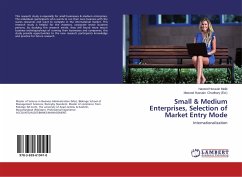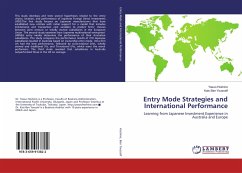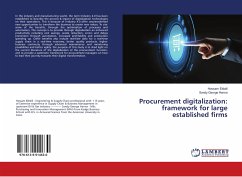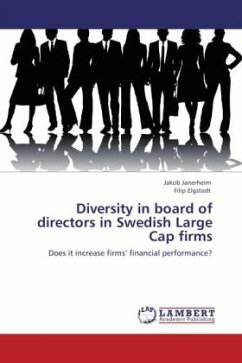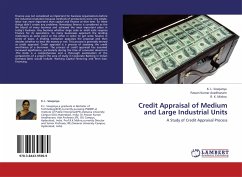
Comparing the Entry Mode Strategies of Large versus Small Firms
Analyzing the brewing industry
Versandkostenfrei!
Versandfertig in 6-10 Tagen
32,99 €
inkl. MwSt.

PAYBACK Punkte
16 °P sammeln!
The worldwide market integration is based upon rules and regulations for trade to harmonize the incorporation of regions with economic specializations and comparative advantages encouraging the promotion of free commerce. For many large firms, an expanding market implies new business opportunities demanding adjustments to stay competitive. However, nowadays the European Union s economy and its growth is dominated by Small and Medium size companies, therefore, a deeper knowledge of its behavior in local markets as well as its interactions across borders is relevant for the effectiveness of the ...
The worldwide market integration is based upon rules and regulations for trade to harmonize the incorporation of regions with economic specializations and comparative advantages encouraging the promotion of free commerce. For many large firms, an expanding market implies new business opportunities demanding adjustments to stay competitive. However, nowadays the European Union s economy and its growth is dominated by Small and Medium size companies, therefore, a deeper knowledge of its behavior in local markets as well as its interactions across borders is relevant for the effectiveness of the policy making process as it is for the entrepreneurs competing in the market. This book applies some theories related to the internalization strategic decision making process of large and small firms in order to compare their entry mode strategies into foreign markets. The analysis considers Belgium as the home market and the brewing industry as the focal sector from which three companies were selected to analyze equity and non-equity entry mode strategies between large and small firms as well as the relevance of host markets for the entry mode choice.



